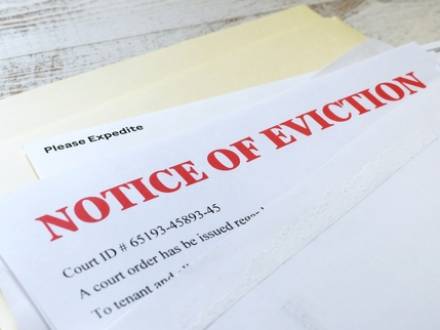Recent Blog Posts
False Confessions: What Illinois Forensic Psychologists Reveal
 Confessions presented in court for criminal offenses are often seen as a definitive "smoking gun," determining guilt beyond a reasonable doubt. After all, who would confess to something they did not do? Unfortunately, false confessions are much more common than you would think, and the state of Illinois has a troubling history of wrongful confessions tied to coerced or false confessions. In fact, the state has learned the hard way – through high-profile exonerations – that psychology can be just as critical as physical evidence.
Confessions presented in court for criminal offenses are often seen as a definitive "smoking gun," determining guilt beyond a reasonable doubt. After all, who would confess to something they did not do? Unfortunately, false confessions are much more common than you would think, and the state of Illinois has a troubling history of wrongful confessions tied to coerced or false confessions. In fact, the state has learned the hard way – through high-profile exonerations – that psychology can be just as critical as physical evidence.
Forensic psychologists can help jurors understand why an innocent person might confess to a crime he or she did not commit, while defense attorneys can utilize this science to help protect their clients. If you are facing serious criminal charges and you were coerced into confessing to a crime you did not commit, a Naperville, IL criminal defense attorney can help.
What is the Armed Habitual Criminal Statute in Illinois?
 The state of Illinois takes gun crimes seriously, but repeat offenders will face even harsher penalties. Under the state’s Armed Habitual Criminal (AHC) statute (720 ILCS 5/24-1.7), those with prior felony convictions can face severe prison sentences just for being caught with a firearm – even when the gun was not used in a violent crime.
The state of Illinois takes gun crimes seriously, but repeat offenders will face even harsher penalties. Under the state’s Armed Habitual Criminal (AHC) statute (720 ILCS 5/24-1.7), those with prior felony convictions can face severe prison sentences just for being caught with a firearm – even when the gun was not used in a violent crime.
While the law is designed to target repeat offenders with serious felony conviction histories, it can be unevenly applied simply for possession of a gun. An AHC conviction carries a mandatory prison sentence with no option for probation.
If you are facing AHC charges, it is important to have a strong legal advocate by your side who will work hard to minimize the consequences of your charges. A Naperville, IL, criminal defense lawyer can help build a comprehensive defense to achieve the best possible outcome.
Illinois Landlord Rights When Tenants Run Airbnbs
 Landlords in Illinois – and across the country - are facing new headaches thanks to the increase in short-term rental platforms like Airbnb and Vrbo. Especially in cities like Chicago, Springfield, and Evanston, the popularity of Airbnbs has exploded. Tenants may view this as an easy way to earn a few extra dollars, perhaps even while they are away on their own vacations.
Landlords in Illinois – and across the country - are facing new headaches thanks to the increase in short-term rental platforms like Airbnb and Vrbo. Especially in cities like Chicago, Springfield, and Evanston, the popularity of Airbnbs has exploded. Tenants may view this as an easy way to earn a few extra dollars, perhaps even while they are away on their own vacations.
These tenants may believe that as long as they pay their rent, they can sublet for a few days or a week if they wish. However, unauthorized subletting can potentially expose landlords to legal, safety, and financial risks. Landlords do have rights when tenants convert their rentals into unauthorized Airbnb properties. If you are a landlord in this position, it is crucial to speak to a knowledgeable Naperville, IL civil litigation lawyer.
What is Illinois Law on Subletting and Short-Term Rentals?
Whether a tenant can sublet an apartment or rent it as an Airbnb is primarily determined by local ordinances and the terms of the lease agreement. If the lease does not mention subletting and local ordinances do not prohibit it, a tenant may legally be able to sublet without landlord permission, but it is generally advisable to speak to the landlord before subletting. If a lease allows subletting but requires landlord consent, the landlord can refuse a subtenant based on the same reasons used to screen tenants.
Asleep at the Wheel, Still Charged: DUI Laws and Parked Cars
 Many people think that the responsible choice when they are too impaired to drive is to pull over and "sleep it off." Unfortunately, in some instances, that decision can result in DUI charges. The law does not just punish people for driving drunk; it also targets those who are considered to be in "actual physical control" of the vehicle while under the influence.
Many people think that the responsible choice when they are too impaired to drive is to pull over and "sleep it off." Unfortunately, in some instances, that decision can result in DUI charges. The law does not just punish people for driving drunk; it also targets those who are considered to be in "actual physical control" of the vehicle while under the influence.
If you are sound asleep in the driver’s seat but your car keys are in the ignition or nearby, the police can interpret this as intent to drive. You must understand your rights in the event you are charged with DUI under one of these gray area situations. If you have already been charged with DUI when you were not driving (or in any other situation), the sooner you speak to a knowledgeable Naperville, IL DUI lawyer, the better your outcome is likely to be.
The Criminal Side of Road Rage: Can Bad Driving Be a Felony?
 Most drivers have experienced frustration behind the wheel, but when that frustration turns into deliberately aggressive behavior, the legal consequences can be serious. In the state of Illinois, road rage is more than just dangerous; it can also result in criminal charges.
Most drivers have experienced frustration behind the wheel, but when that frustration turns into deliberately aggressive behavior, the legal consequences can be serious. In the state of Illinois, road rage is more than just dangerous; it can also result in criminal charges.
What begins as an angry honk or a rude gesture can quickly escalate into reckless driving, assault, or even felony charges. If you are facing road rage-related charges, you must take these charges seriously. An experienced Naperville, Illinois criminal defense lawyer can explain your options and the penalties you could face while building an aggressive defense on your behalf.
What Are the Distinctions Between Aggressive Driving and Road Rage?
Anyone who has driven for any length of time has been there: A driver makes an unexpected lane change, swerves in front of another driver, and the urge to yell, honk the horn, or make a rude gesture is strong. Unchecked emotions behind the wheel can lead to unexpected consequences, resulting in far-reaching and less-than-pleasant outcomes. In the state of Illinois, Aggressive driving is defined as a series of traffic violations that are motivated by impatience or frustration.
What Counts as a "Material Breach" in a Residential Lease?
 In the state of Illinois, landlords are prohibited from evicting a tenant for relatively simple lease violations. To pursue eviction, the tenant must have committed a material breach of the lease. A material breach means the violation was serious and it undermined the core tenets of the rental agreement. But what qualifies as a material breach?
In the state of Illinois, landlords are prohibited from evicting a tenant for relatively simple lease violations. To pursue eviction, the tenant must have committed a material breach of the lease. A material breach means the violation was serious and it undermined the core tenets of the rental agreement. But what qualifies as a material breach?
Landlords who have a good understanding of the distinction between a material breach and a simple lease violation can better protect their rights, avoid court delays, and ensure any eviction decision is legally sound. Landlords can stay compliant with the law while remaining effective by discussing any potential evictions with a Naperville, IL landlord eviction attorney.
What Is a Material Breach Under Illinois Law?
A material breach occurs when a tenant’s failure to fulfill his or her contractual obligations is so significant that it defeats the entire purpose of the contract, depriving the other party of the substantial benefit he or she expected. A breach this serious allows the landlord to terminate the contract and, in some cases, pursue damages.
Will You Be Forced to Install a BAIID for a First-Time DUI?
 Being charged with DUI in Illinois can be overwhelming. In addition to potential criminal penalties, like jail time and steep fines, there are other penalties that can have devastating consequences on your day-to-day life. Having your driver’s license suspended is one of these.
Being charged with DUI in Illinois can be overwhelming. In addition to potential criminal penalties, like jail time and steep fines, there are other penalties that can have devastating consequences on your day-to-day life. Having your driver’s license suspended is one of these.
We are a mobile society, and you, like most of us, likely depend heavily on your ability to drive. We drive to work, to school, to take our children to and from school and extracurricular activities, and to run necessary errands. Being required to have a Breath Alcohol Ignition Interlock Device (BAIID) on your vehicle in order to drive can add significantly to the financial costs associated with a DUI conviction.
The best step you can take after being charged with DUI is to speak to an experienced Naperville, IL DUI lawyer who will work zealously to have your charges reduced or dropped or to achieve a not-guilty verdict at trial. Having a knowledgeable DUI attorney by your side can significantly alter the outcome of your charges.
How Severe Are Penalties for Intent to Distribute Cocaine in Illinois?
 State police in Illinois made a near-record cocaine bust during a McLean County traffic stop in April. The suspect was arrested on eastbound I-74 near LeRoy. The charges included controlled substance trafficking and possession and the manufacture/delivery of a controlled substance. The police seized 234 pounds of cocaine with a street value of more than $10 million.
State police in Illinois made a near-record cocaine bust during a McLean County traffic stop in April. The suspect was arrested on eastbound I-74 near LeRoy. The charges included controlled substance trafficking and possession and the manufacture/delivery of a controlled substance. The police seized 234 pounds of cocaine with a street value of more than $10 million.
Offenses related to the production and sale of cocaine are punished harshly in Illinois, but in some cases, law enforcement may push the limits of the Constitution when investigating and arresting those suspected of cocaine offenses. Technology continues to provide increasingly invasive means of surveillance, leaving our judicial system struggling to keep up.
How the Expansion of Crime-Free Housing Laws Affects Landlords
 Recently, a Senate committee advanced a measure that aims to limit the circumstances under which tenants can face eviction because of ordinances that fall under "crime-free housing." Across the state of Illinois, one hundred cities have crime-free housing laws that allow landlords to evict a family for a minor offense, even if the offense did not occur on the property.
Recently, a Senate committee advanced a measure that aims to limit the circumstances under which tenants can face eviction because of ordinances that fall under "crime-free housing." Across the state of Illinois, one hundred cities have crime-free housing laws that allow landlords to evict a family for a minor offense, even if the offense did not occur on the property.
Thanks to these ordinances, as many as one in four Illinois residents live in rental homes that require them to sign a lease with a caveat. The lease states that if anyone who lives in the rental is accused of a crime, regardless of how minor, and regardless of whether the crime is even prosecuted, the tenant and family members can be evicted.
What Happens in an Out-of-State Illinois DUI Arrest?
 Traveling to another state can be exciting and interesting as you see new things and perhaps meet new people. Getting arrested for DUI in another state can spoil your vacation or business trip and is just about as messy a situation as you might imagine. If you were arrested in Illinois and charged with DUI, you are likely wondering whether you will have to come back to the state for a trial, what the penalties will be, and whether it will show up on your record in your home state.
Traveling to another state can be exciting and interesting as you see new things and perhaps meet new people. Getting arrested for DUI in another state can spoil your vacation or business trip and is just about as messy a situation as you might imagine. If you were arrested in Illinois and charged with DUI, you are likely wondering whether you will have to come back to the state for a trial, what the penalties will be, and whether it will show up on your record in your home state.
Regardless of whether you are a resident of Illinois, the state takes DUI charges seriously, and the consequences can be significant. You are right to be worried. However, the best thing you can do right now is to speak to a highly experienced Naperville, IL DUI lawyer who can provide you with information about how this will affect your driving privileges in your home state and handle your DUI in Illinois.





